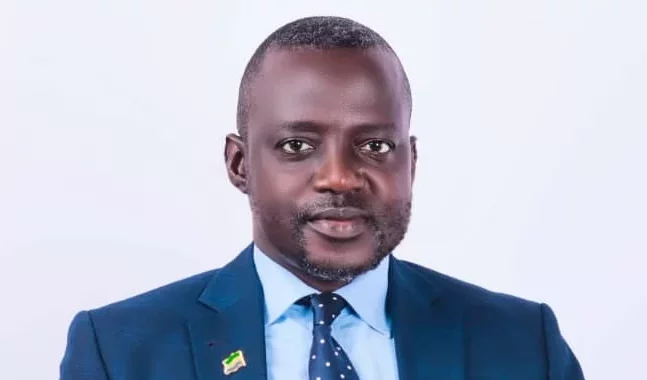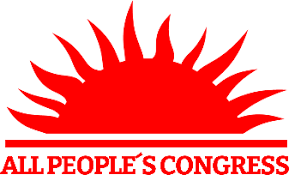By Cornelius Oguntola Melvin Deveaux
The All People’s Congress (APC) did not petition the just concluded presidential election because the party does not trust the judiciary even though the party believes the outcome is fraudulent.
Albeit, in the absence of any legal challenge to the results of the presidential election, as provided for in the Public Elections Act (PEA-2022) and the 1991 Constitution, the outcome could be said to have legally bagged a clean bill of health.
Given this clean bill of health, the vague hope of a re-run election within six months is legally inconsistent with statutes as much as it is logically impossible.
I, therefore, write to insist the route taken by the party in the form of boycotting governance is not politically expedient and to similarly give Hon. Mohamed Bangura a pat on the back for upholding the conviction that elected representatives are called upon by duty to lead, in fulfillment of a determination to render service at all levels of governance and to respect, obey and protect the Constitution and laws of Sierra Leone.
My wish is that other elected representatives, sooner than later, see a reason to emulate this fine example.
As I mentioned in a previous piece, the APC March 2022 Constitution does not bestow any such powers on the de-facto executive and the de-facto National Advisory Committee (NAC) to issue a directive to elected MPs, Mayors, Chairpersons, and local councilors to boycott governance.
The curtains over this nonsensical posture, now dubbed party position, have further been raised after careful listening to the interview of Hon Mohamed Bangura in which he outlines why he thinks he is under no obligation to comply with the party directive to boycott governance.
The message in his interview with Gbla TV Online highlights significant actualities worth contemplation.
The first is about the legality of the directive issued by NAC.
According to Hon. Mohamed Bangura, the meeting that adopted the decision to boycott governance was not in line with the prescriptions of the new party constitution.
He claims that the members present did not constitute a quorum.
It, therefore, begs the question as to whether the NAC meeting was an ordinary NAC meeting in line with Article 21(a) of the new constitution or a Special and Emergency NAC meeting provided for in Article 21(c) and Article 20(g).
According to the APC March 2022 constitution, ordinary NAC meetings are convened at least once every three months in line with Article 21(a). Article 21(f) provides that one-third of NAC members shall constitute a quorum. Article 21(g) provides that decisions at such meetings shall be by a simple majority, but where attendance is less than half of the total membership, resolutions reached in such meetings shall be carried by a two-thirds majority vote of the members present.
On the other hand, if the NAC meeting in question was a Special and Emergency NAC meeting provided for in Article 21(c), pursuant to Article 20(g), then not less than half of NAC members, including a representative from each political region, shall constitute a quorum. Article 21(g) states that in such meetings, decisions shall be by two – thirds majority of members present at the meeting.
Hon. Mohamed Bangura’s claim that the NAC meeting was not a properly constituted authority is sufficient to whet the curiosity of right-thinking members and the citizenry.
It is up to the National Secretary General of the party to provide the general membership and the public with evidence to refute this claim. The evidence should include the nature of the summons of the NAC meeting, the venue and date, an attendance list, and the records of the said meeting, indicating the manner of voting and outcome.
The second issue revolves around democratic participation. Hon. Mohamed Bangura claims the making of the directive is not consensual. He claims elected representatives were not allowed to discuss the idea of a governance boycott at a meeting with the de-facto leadership of the party, nor did they have the opportunity to debate, analyze, review, or make any verbal or written submission during the meeting.
This claim is at odds with earlier assertions by the NSG that the directive to boycott governance emanates from extensive consultations.
In a press release earlier this month, the party purports that following extensive internal consultations, it now calls for non-participation in all levels of governance, the resignation of the electoral commissioners, a travel ban on senior government officials and officers of the Sierra Leone Peoples Party (SLPP), and a re-run of the elections within six months.
Readers will agree that if there was anything like extensive internal consultations, one group that must and should have been part of the consultations is that of the elected representatives.
Hon. Mohamed Bangura claims that in contravention of Article 12 of the new constitution, which deals with the rights and duties of a member, elected representatives were denied their right to participate in the activities of the party when they were not allowed to debate, analyze, review, or make any verbal or written submission to the notion of boycotting governance during a subsequent meeting.
This claim disproves the claim that the party conducted extensive internal consultations to have decided to boycott governance. To prove otherwise, the NSG should provide the membership and the public with details of these consultative meetings, including the date, venue, attendance list, and the records of the said meeting indicating the manner of voting and outcome.
Other elected representatives should also speak out or forever hold their peace as stooges and not persons worthy to serve as elected representatives.
From the above postulations, the directive lacks legal footing and is not a consensus.
The third issue concerns evidence of tampering with the results during tabulation at tallying centers.
In the interview, Hon. Mohamed Bangura claims there is result fixing during the tabulation of results at tallying centers.
He references a particular polling station in his home district of Karene where the SLPP had pulled 9,000 votes, which was wrongly input into the system as 19,000 at the tallying center. He claims there is evidence of wrong in-puts in several other districts.
His disclosure is tangible proof to support allegations of vote rigging. The party did not necessarily need the full complement of RRFs from across the country to have provided evidence to support its claim of vote rigging consequent to the lack of transparency in tallying the results.
But why would the party not go to court for redress, knowing better than the ordinary man and woman that the Supreme Court is the constitutional arbitrator of presidential elections dispute?
To say the party did not go to court or did not petition the just concluded presidential elections because the party does not trust the judiciary is a smoke screen.
It is no longer a secret that filing petitions against some SLPP MPs in 2018 was stalled because one of our lawyers in whose custody was the evidence claimed to have misplaced the evidence and could not complete the process.
We also witnessed in awesome wonder how the de-facto leadership influenced the court to overturn decisions of the 21-man committee IGTC and how quickly an injunction not to go to the convention was varied.
Those who advised the party not to seek legal redress did so in pursuit of a sinister objective made clear for all to see in the manipulation, hatred, dislike, and betrayal of Dr. Samura Kamara.
Again, by not going to court, Dr. Samura Kamara shoots himself in the leg and still expects to walk upright without a limp.
In conclusion, Hon. Mohamed Bangura has laid bare the stakes. There is no provision in the party constitution to support the directive to boycott governance; the supposed NAC meeting that took the decision was improperly constituted; and the people who are directly affected by the directive (elected representatives and the people) had no say in the making of the directive thus making it devoid of democratic participation.
Except the party proves these wrong, Hon. Mohamed Bangura stands on the right side of history.













